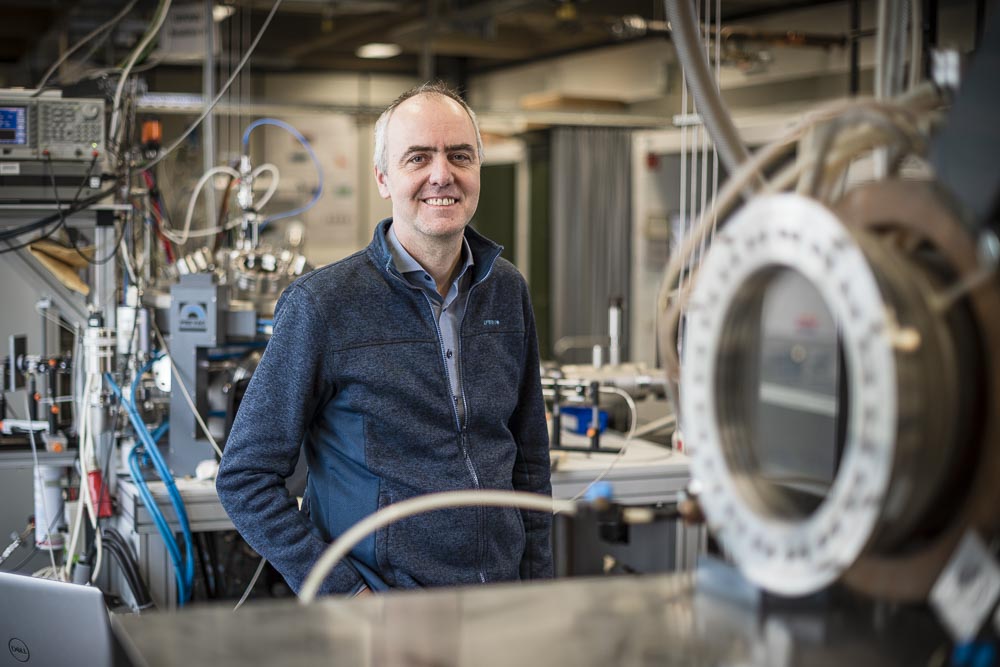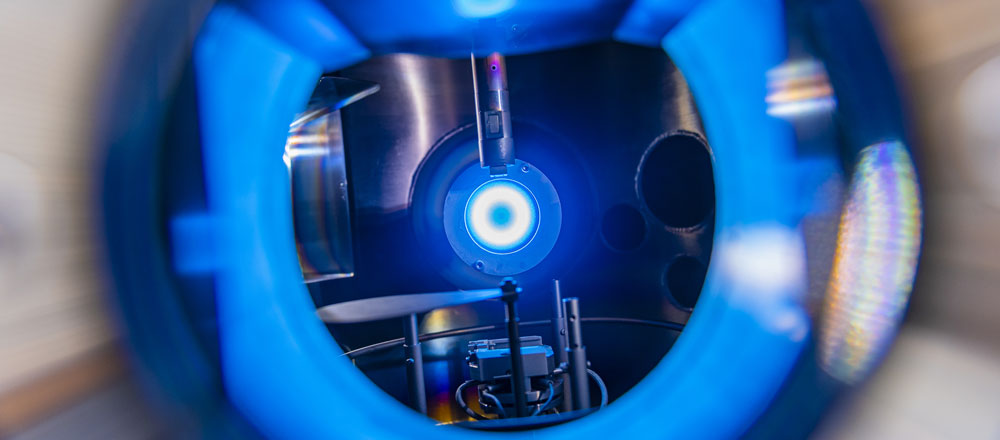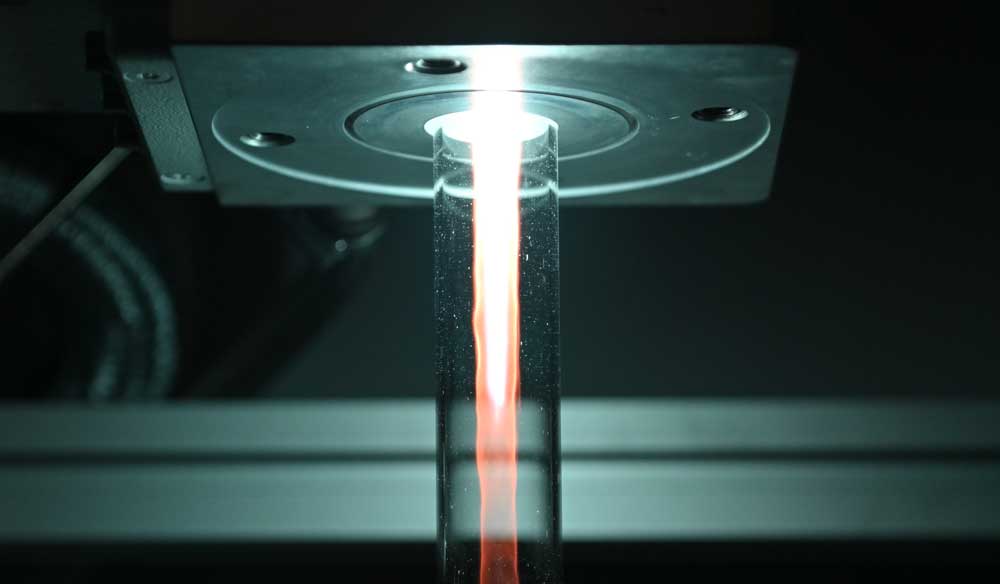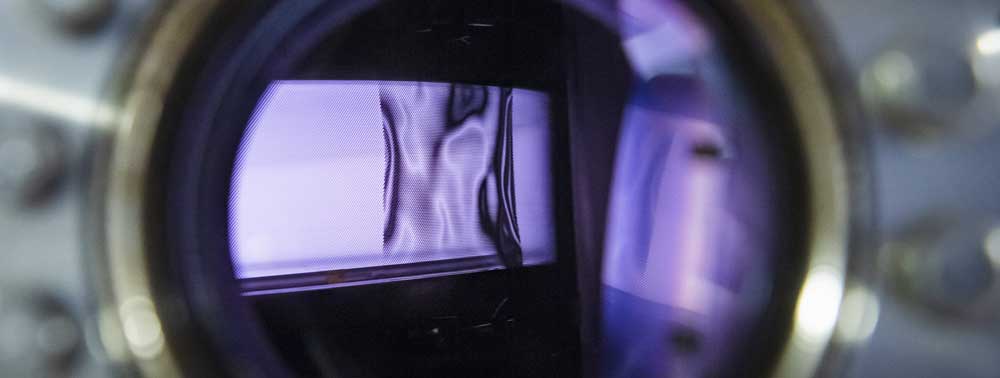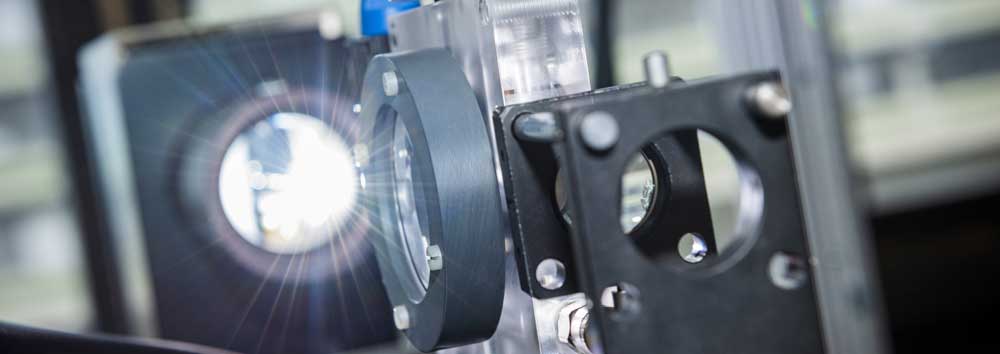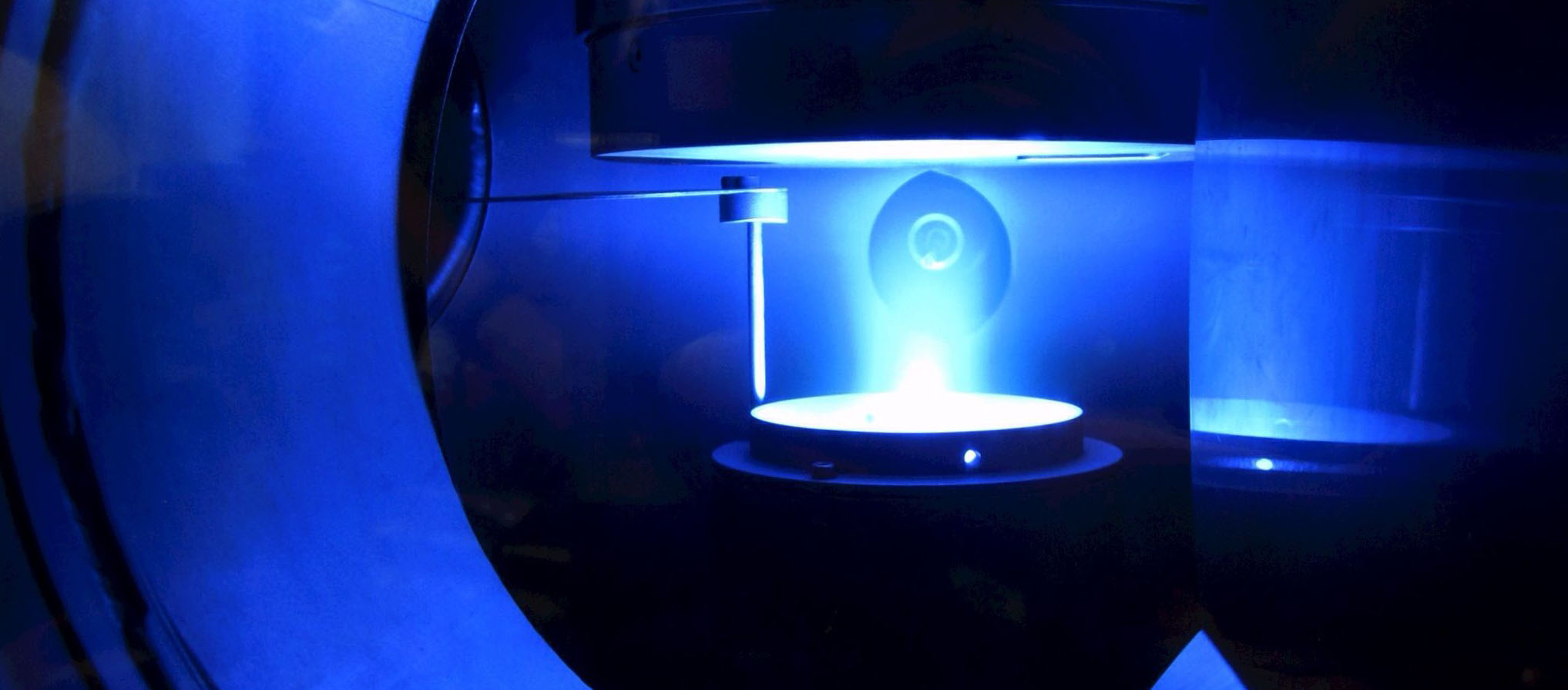The biggest challenge is people's minds
Research data management - that sounds primarily technical. But a social component is also crucial, as plasma researcher Achim von Keudell knows to report.
At first glance, storing data in a structured and well-documented manner does not seem to be a challenge. But if you look at this task in detail, there are some hurdles to overcome. The team in Collaborative Research Center (CRC) 1316 "Transient Atmospheric Pressure Plasmas" has taken up the cause. SFB spokesman Prof. Dr. Achim von Keudell tells us in an interview why there were some thick boards to drill.
Professor von Keudell, why is research data management a challenge in your field?
Fifty percent of research in physics is done in large-scale research projects, such as in astrophysics or nuclear physics, where there are standards for data storage. The rest has been held in small laboratories. There, it is common for each group to use its own programs for data analysis or for creating graphics, or to use its own tools for data storage. In addition, the data from different experiments are very heterogeneous. The biggest challenge, however, is people's minds.
Why?
At first, many don't see the added value of research data management. They are worried that others could steal their data if it is handled too transparently. I have done a lot of promotion for the topic at conferences of the German Physical Society - and I was surprised how much convincing has to be done and what kind of resistance you have to fight against. It's a bit like telling a teenager "Clean your room" and getting the answer "Why? I can find everything."
Younger researchers are often open to research data management. Others often don't see the benefits at first, because they've gotten by for a long time without a standardized form of data storage and documentation. In the meantime, however, research funding organizations and scientific journals are demanding transparency.
Yes, the question of whether you have to make data accessible has not existed for one or two years. The German Research Foundation supports research data management, and you can no longer publish in many journals without publishing your data in a repository in parallel. Nevertheless, we still have a dormant treasure here that needs to be lifted.This is sustainable, especially when you consider that this data was produced with taxpayers' money.
In what way?
It's not just about publishing the data somehow, but doing it like this so that the next generation of researchers can continue to work with it. That's sustainable, especially considering that this data was produced with taxpayers' money.
In our Collaborative Research Center, for example, we have worked with colleagues to develop standards for metadata: When I perform a measurement, it is not only the results that are interesting. In order for someone to be able to reproduce the data later, it may also be relevant to know what the temperature was in the lab and which measuring device was used to make the recording. For various experiments, we discussed which metadata needed to be documented, and in the SFB we now use a common repository to store the data with uniform standards.
How easy was that to do?
We were able to build on good preliminary work from our colleagues at the Leibniz Institute INP in Greifswald, who had already given a lot of thought to the topic and recommended a particular open source software solution. However, as mentioned before, the data generated in different experiments is very different. Pouring that into a larger format that everyone is happy with is not easy. But we now have a system that about 50 people from different areas of plasma research - from engineered plasmas to biotechnology - are using, and we are continuously developing it.
In the meantime, something is changing in people's minds!
And how does the broad plasma community feel about the topic in the meantime?
In the meantime, we know that it is particularly convincing to present successful individual examples. If you only discuss at the level of FAIR principles, it remains too abstract. Concrete application cases help to convince people. And in the meantime, something is changing in people's minds!
Many now see the advantages. If we store data in a well-documented and accessible way, researchers can get access to a wide variety of measurements and perform cross-cutting analyses. This has not been done much before, but it enables completely new insights. It has crazy potential.
If you get involved early, you have the chance to help shape it!
What do you tell colleagues who are still skeptical?
That it's better to participate wholeheartedly from the start than to have to realize after ten years of resistance that there's no way around it anyway and that standards have been established that don't suit you. If you join in early, you have the chance to help shape things!
In the meantime, we know that it is particularly convincing to present successful individual examples. If you only discuss at the level of FAIR principles, it remains too abstract. Concrete application cases help to convince people. And in the meantime, something is changing in people's minds!
Many now see the advantages. If we store data in a well-documented and accessible way, researchers can get access to a wide variety of measurements and perform cross-cutting analyses. This has not been done much before, but it enables completely new insights. It has crazy potential.
If you get involved early, you have the chance to help shape it!
What do you tell colleagues who are still skeptical?
That it's better to participate wholeheartedly from the start than to have to realize after ten years of resistance that there's no way around it anyway and that standards have been established that don't suit you. If you join in early, you have the chance to help shape things!
adapted from Julia Weiler (RUB)
